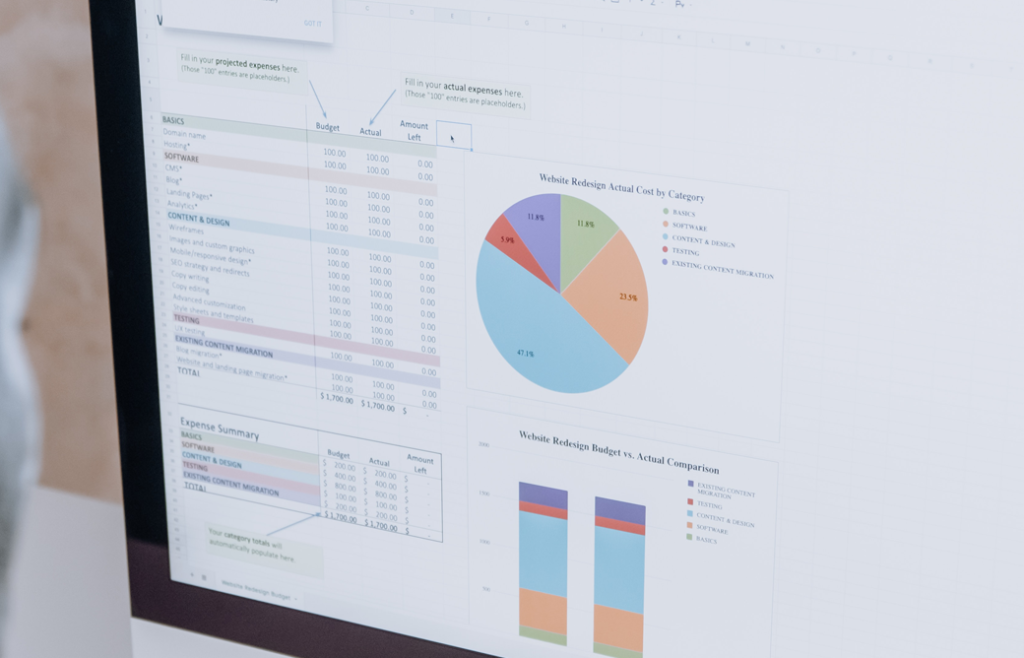
As a freight forwarder, you know the importance of making a profit. But how do you maximize your earnings while keeping your clients happy? It can be a challenging task, especially in today’s competitive market. However, with the right knowledge and strategies, you can boost your profits and grow your business. In this article, we’ll discuss 11 insider tips for boosting your freight booking profits in 2023.
Before we dive into the tips, let’s take a moment to understand how freight forwarders‘ profits are calculated. Freight forwarders make money by charging their clients for the services they provide, such as air freight and sea freight. The profit margin is calculated by subtracting the total cost of the service from the revenue generated. The cost of the service includes transportation, handling, documentation, customs clearance, and insurance, among other things.
Logistics profit is the amount of money a company makes from its logistics operations. It includes the profit margins earned from freight forwarding, warehousing, and transportation services. Logistics profit is an essential factor in determining the overall profitability of a company.

The key to maximizing your business profits is to focus on the factors that contribute to your success. This includes providing excellent customer service, offering competitive pricing, and improving your efficiency. You also need to have a clear understanding of your target market and stay up-to-date with the latest trends and technologies in your industry.
Freight forwarding is a complex and competitive industry, making it difficult for companies to make a profit. The high cost of transportation, fluctuating fuel prices, and the need to maintain a vast network of suppliers and partners all contribute to the challenge. Additionally, freight forwarders face increasing pressure to offer lower prices to their clients, further reducing their profit margins.
Freight bookings are the lifeblood of the logistics industry. However, many companies struggle to maximize their profits from this service. By following these 11 essential tips and strategies, you can increase your profits and stay competitive in the market.
To maximize your profits from freight bookings, you need to understand your costs. This includes not only transportation costs but also administrative costs, such as invoicing and payment processing.
Customized solutions can help you charge premium prices and differentiate yourself from competitors. By tailoring your services to your clients’ unique shipping needs, you can increase your profits and build a loyal customer base.
Transportation costs are a significant factor in determining the profitability of freight bookings. By optimizing your transportation routes, you can reduce costs and increase efficiency, which can lead to higher profits.
Pricing is a critical factor in the success of any business, and freight booking is no exception. By implementing a pricing strategy that balances profitability with competitiveness, you can attract more customers and increase profits.
Technology can help improve efficiency and reduce costs in the freight booking process. By using transportation management systems, electronic documentation, and online tracking tools, you can streamline operations and provide better customer service, which can lead to increased profits.
Excellent customer service can help you build a loyal customer base and differentiate yourself from competitors. By providing timely and accurate information, resolving issues quickly, and offering personalized service, you can increase customer satisfaction and loyalty.
Strong relationships with clients, carriers, and partners can help you secure better rates, reduce costs, and increase profitability. By investing time and effort in building these relationships, you can differentiate yourself from competitors and build a loyal customer base.
Market conditions can impact your profitability. By monitoring market trends and adjusting your pricing and services accordingly, you can stay competitive and maximize your profits.
Regularly evaluating your performance can help you identify areas for improvement and make informed decisions to increase profitability. This includes analyzing financial data, customer feedback, and operational metrics.
Innovation can help you stay ahead of the competition and maximize your profits. By embracing new technologies and business models, you can improve efficiency, reduce costs, and offer new services that meet evolving customer needs.
Compliance with regulations and industry standards is essential to maintaining a profitable freight booking business. By staying up to date on regulatory requirements and investing in compliance management, you can avoid costly fines and legal issues that can negatively impact your profitability.
| Tip | Description |
|---|---|
| 1. Understand Your Costs | Understanding transportation and administrative costs is crucial for maximizing profits. |
| 2. Offer Customized Solutions | Offering tailored solutions can help differentiate your business and charge premium prices. |
| 3. Optimize Your Transportation Routes | Optimizing routes can reduce costs and increase efficiency, leading to higher profits. |
| 4. Implement Pricing Strategies | Balancing profitability with competitiveness through a pricing strategy can attract more customers and increase profits. |
| 5. Leverage Technology | Technology can streamline operations, improve customer service, and reduce costs. |
| 6. Focus on Customer Service | Providing excellent customer service can build loyalty and increase satisfaction. |
| 7. Build Strong Relationships | Strong relationships can secure better rates, reduce costs, and build a loyal customer base. |
| 8. Monitor Market Conditions | Adapting to market trends through pricing and services can stay competitive and maximize profits. |
| 9. Evaluate Your Performance | Analyzing financial and operational data can identify areas for improvement and increase profitability. |
| 10. Embrace Innovation | Innovating with new technologies and services can stay ahead of competitors and meet customer needs. |
| 11. Stay Compliant | Compliance with regulations and industry standards can avoid costly fines and legal issues. |
In conclusion, maximizing profits from freight bookings requires a combination of strategic thinking, operational efficiency, and excellent customer service. By implementing these 11 tips, you can stay competitive in the market and increase profitability.

Salespeople are the driving force behind the logistics industry. However, motivating your sales team can be a challenge. Here are ten tips to help you keep your sales team motivated and successful:
Setting clear goals and objectives can help your sales team stay focused and motivated. Make sure they understand what is expected of them, and how their performance will be measured.
Incentives are a great way to motivate your sales team. Consider offering bonuses, commissions, and other rewards for achieving or exceeding their goals.
Provide your sales team with ongoing training and support. Make sure they have the resources and knowledge they need to succeed.
Encouraging collaboration can help your sales team work together to achieve their goals. Foster a culture of teamwork and encourage your team to share their ideas and strategies.
Recognize and celebrate the successes of your sales team. This can help boost morale and motivate your team to achieve more.
Creating a positive work environment can help your sales team feel more engaged and motivated. Provide a comfortable workspace, and encourage open communication and feedback.
Recognize the individual achievements of your sales team. This can help boost their confidence and motivate them to continue performing well.
Providing opportunities for growth can help your sales team feel valued and motivated. Offer career development opportunities, and encourage your team to learn new skills.
Offering flexibility can help your sales team achieve a better work-life balance, which can lead to increased motivation and productivity.
Using technology to streamline processes can help your sales team work more efficiently and effectively. Consider using customer relationship management (CRM) software, and other digital tools to support your sales team.
By following these tips, you can help keep your sales team motivated and successful in the logistics industry. From company logistics to air freight and sea freight, a motivated sales team can help drive success and growth for your business.

By implementing these tips, you can boost your logistics profits and take your business to the next level. Remember to focus on the factors that contribute to your success, including excellent customer service, competitive pricing, and efficiency. Stay up-to-date with the latest industry trends and technologies and leverage data analytics to identify opportunities for growth and improvement. With the right strategies and mindset, you can maximize your freight booking profits and achieve your business goals in 2023.
Logistics profit is the amount of money a company earns from its logistics operations. It includes the profit margins earned from freight forwarding, warehousing, and transportation services.
Logistics profit is calculated by subtracting the total cost of logistics services provided from the revenue generated. The cost of the service includes transportation, handling, documentation, customs clearance, and insurance, among other things.
Logistics firms can ensure they are making a profit by focusing on factors that contribute to success, such as offering competitive pricing, providing excellent customer service, improving efficiency, and staying up-to-date with industry trends and technologies. It’s also essential to monitor expenses closely and negotiate better rates with suppliers and partners.
Common challenges when trying to profit in logistics include high transportation costs, fluctuating fuel prices, maintaining a vast network of suppliers and partners, and increasing pressure to offer lower prices to clients, reducing profit margins.
To increase your freight forwarding sales, you can focus on building strong relationships with your clients and suppliers, optimizing your routes to reduce transportation costs, offering additional services like customs clearance and warehousing, implementing a pricing strategy that balances profitability with competitiveness, and leveraging data analytics to identify opportunities for growth.